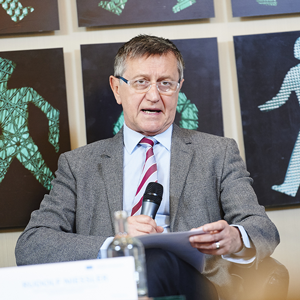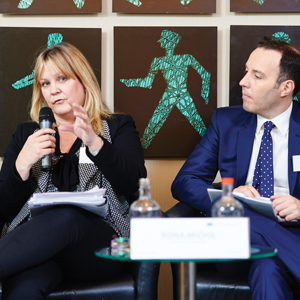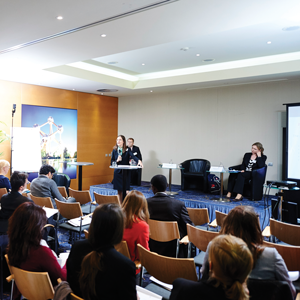Financial Instruments for delivery of the ERDF and the Cohesion Fund
Overview
A series of three identical fi-compass seminars took place on 27 May in Brussels, 2 June in Vienna and 9 June in Warsaw. The aim of these seminars was to help participants understand how financial instruments can support ESIF 2014-2020 objectives, in particular under the ERDF and the Cohesion Fund.

Picture: Rudolf Niessler, Director, DG Regional and Urban Policy, European Commission
The Brussels seminar opened with a statement by Rudolf Niessler, Director, DG Regional and Urban Policy, European Commission, on the rationale for using financial instruments to mobilise private investments towards the public good. The seminars in Vienna and Brussels were opened with an introductory statement by Stefan Appel, Head of Financial Instruments and International Financial Institutions Relations Unit, DG Regional and Urban Policy, European Commission. In turn, Björn Gabriel, Head of fi-compass Advisory Services, European Investment Bank, explained that fi-compass is to serve as a catalyst and help set things in motion. He emphasised that orientation and guidance were available in the form of manuals, learning material, case studies, templates, events, etc.
Several good practice examples were presented during all three seminars. Speakers from Wales, Sardinia, Hungary, the Czech Republic, Berlin, England, Estonia and Lithuania described financial instrument solutions developed in various regions and presented the results achieved in the previous programming period and the action plans they are developing for the next period. Resources such as ex-ante assessment guidance and a methodology toolbox were of particular interest to participants in learning how to design and deliver the right financial instrument or combination of instruments for each situation.

Picture: Rona Michie, University of Strathclyde and Marco Naseddu, Secretary of the Investment Board of the JESSICA HF in Sardinia
During dedicated workshops, the European Commission explained that due to numerous requests for clarification of certain regulatory provisions, the EC was issuing guidance on specific topics. The Commission presented the published guidance on ex-ante assessment and working capital, and also gave an outlook on guidance concerning phased payments and combining financial instruments with other forms of assistance, both under discussion with Member States.
These seminars are a good way to exchange ideas on what is valuable; providing opportunities for managing authorities to discuss what works for them and what they need so as to move forward with financial instruments. According to most of the participants surveyed during the Brussels seminar, fi-compass can only be enhanced by the regular face-to-face interactions between professionals and peers. Equally, if fi-compass continues to initiate these interactions, be they off-line or on-line, it will enable all stakeholders to move forward with more confidence, knowing that they are able to learn from best practices but also from others’ past mistakes.

Picture: Participants at the fi-compass Vienna seminar
Crucially, fi-compass will be growing with additional cases to be published as well as more guides and tools including videos, events and training.

